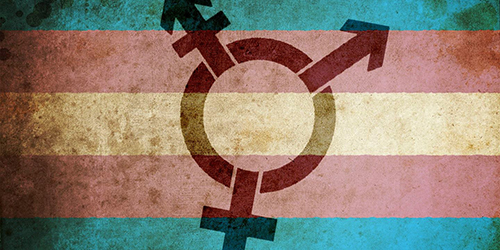BY AJ TRAGER

DETROIT – As reported this week by the Advocate, a new trans lifeline began taking calls in November and claims to be the first in the U.S. However, the transgender helpline provided by Transgender Michigan (TGMI) has been offering services long before 2014.
Transgender Michigan was started 17 years ago. Co-Founder Rachel Crandall noticed that there was a need for a helpline for individuals to call and get help, to be heard or to just come out to an understanding ear.
"I noticed that a lot of people were in crisis, had problems and had no one to talk to," Crandall said. "It was the first transgender helpline in the country. And there's never been another one until right now. They are starting one in San Francisco. So, it's one of the many ways that Michigan was far ahead of the rest of the country."
Today the Michigan hotline is answered by three individuals who take calls from Michigan, the rest of the country and as far away as Dubai.
"It's not weird that we get a call from someone who says, 'I've never told it to anyone else in the world, however, I am a transexual.' So very often we are the very first person that someone ever says that out loud to," Crandall said.
With the addition of the Californian hotline, the country now has two numbers for the transgender community to utilize for help and support. Crandall would like to see more of these services pop up around the country so that trans individuals have a place to call in their specific region, if not their own state.
National statistics have long stated that transgendered individuals are twice as likely to be unemployed, with more than 40 percent reporting that they are underemployed and are subject to wage inequities, lack of legal protections, the inability to update identity documents, unequal access to health insurance benefits and denial of personal medical leave.
But aside from employment discriminations, the transgender community faces higher rates of suicide, rejection by family and friends, discrimination, victimization and violence, the Williams Institute reports. A nationwide survey by transgenderlaw.org (http://www.transgenderlaw.org/resources/transfactsheet.pdf) found that from 1985 to 1998, 20 percent of all murders and 40 percent of all police-initiated violence was against a trans person, 85 percent reported physical or emotional abuse for their gender identity and close to half of trans women and men are without health insurance.
Many things have changed since the 90s and statewide and federal policies are expanding to include trans protections and rights, but America has a long way to go before it reaches full equality for all people.
"What's so exciting for me is that every caller is a little different," Crandall said. "Two callers may feel alike, however, we are all very very different. And I find that exciting. We never know what we're going to get. It really keeps me on my toes."
A big part of the work for Crandall is how rewarding it is for her and her team. Transgender Michigan will continue to work in Michigan and promote other trans services because the more people who are served, the more lives that are potentially saved.
"We really want to make sure the quality of the helpline is as high as it can be. We actively listen, empathize and help the caller make the decision (to come out) themselves."










